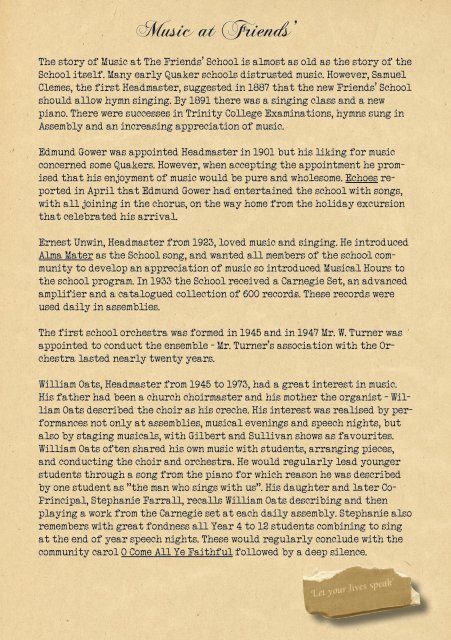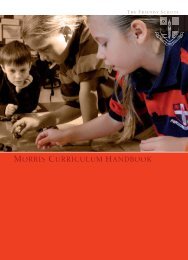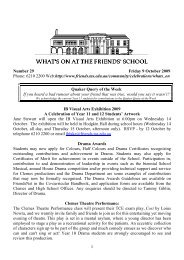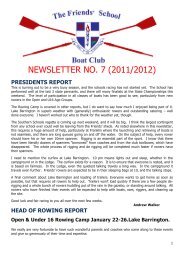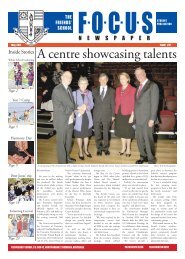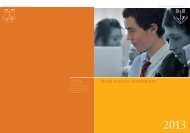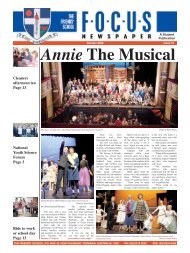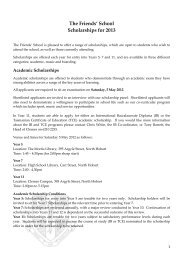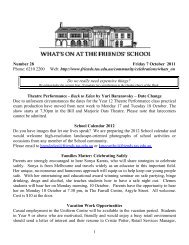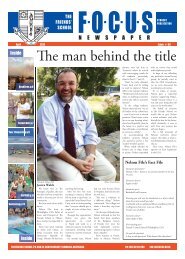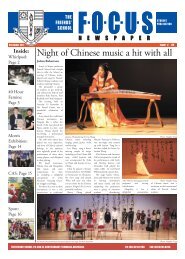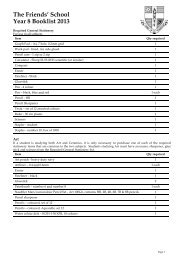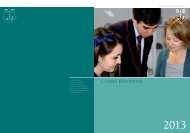The Friends' School
The Friends' School
The Friends' School
Create successful ePaper yourself
Turn your PDF publications into a flip-book with our unique Google optimized e-Paper software.
Music at Friends’<strong>The</strong> story of Music at <strong>The</strong> <strong>Friends'</strong> <strong>School</strong> is almost as old as the story of the<strong>School</strong> itself. Many early Quaker schools distrusted music. However, SamuelClemes, the first Headmaster, suggested in 1887 that the new <strong>Friends'</strong> <strong>School</strong>should allow hymn singing. By 1891 there was a singing class and a newpiano. <strong>The</strong>re were successes in Trinity College Examinations, hymns sung inAssembly and an increasing appreciation of music.Edmund Gower was appointed Headmaster in 1901 but his liking for musicconcerned some Quakers. However, when accepting the appointment he promisedthat his enjoyment of music would be pure and wholesome. Echoes reportedin April that Edmund Gower had entertained the school with songs,with all joining in the chorus, on the way home from the holiday excursionthat celebrated his arrival.Ernest Unwin, Headmaster from 1923, loved music and singing. He introducedAlma Mater as the <strong>School</strong> song, and wanted all members of the school communityto develop an appreciation of music so introduced Musical Hours tothe school program. In 1933 the <strong>School</strong> received a Carnegie Set, an advancedamplifier and a catalogued collection of 600 records. <strong>The</strong>se records wereused daily in assemblies.<strong>The</strong> first school orchestra was formed in 1945 and in 1947 Mr. W. Turner wasappointed to conduct the ensemble - Mr. Turner's association with the Orchestralasted nearly twenty years.William Oats, Headmaster from 1945 to 1973, had a great interest in music.His father had been a church choirmaster and his mother the organist - WilliamOats described the choir as his creche. His interest was realised by performancesnot only at assemblies, musical evenings and speech nights, butalso by staging musicals, with Gilbert and Sullivan shows as favourites.William Oats often shared his own music with students, arranging pieces,and conducting the choir and orchestra. He would regularly lead youngerstudents through a song from the piano for which reason he was describedby one student as "the man who sings with us". His daughter and later Co-Principal, Stephanie Farrall, recalls William Oats describing and thenplaying a work from the Carnegie set at each daily assembly. Stephanie alsoremembers with great fondness all Year 4 to 12 students combining to singat the end of year speech nights. <strong>The</strong>se would regularly conclude with thecommunity carol O Come All Ye Faithful followed by a deep silence.


